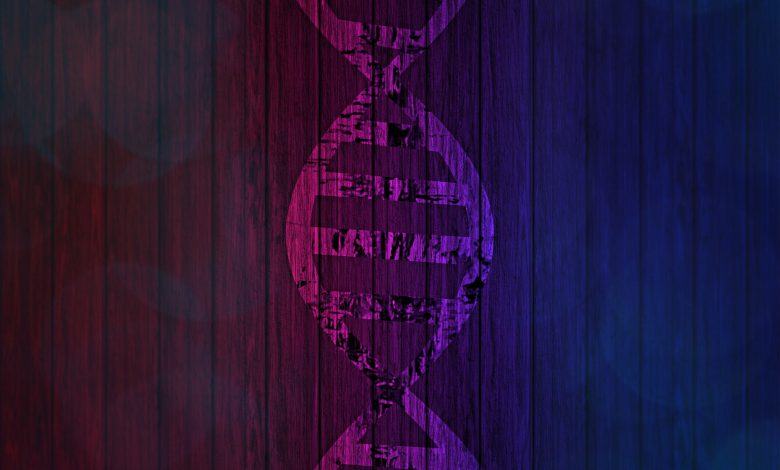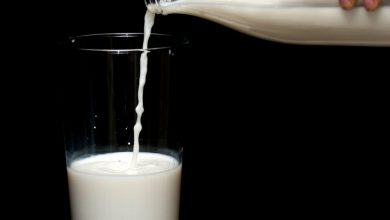
How L- Phenylalanine Helps Tackle Obesity
Almost one third of the adult population in the U.S suffers from obesity and related ailments. It is not just adults who are at risk here, but also children. According to a report published on the Harvard School of Public Health site, in the year 2010, obesity rates had increased by a whopping 10%, and in 36 states across the country, 25% of the population was obese. In 12 of these states, 30% of the population fell under this bracket. Obesity in childhood and adolescence is on the rise in an alarming fashion, with one of six Americans between the ages of 2 and 19 being obese. According to this report, an expenditure of $20 billion every year in the U.S. goes towards weight loss strategies across the board. Basically, as a nation, we are quite terrified about the onset of obesity and its many, many adverse manifestations, and perhaps it is this anxiety that ensures that every weight loss idea and book enjoy their time in the spotlight.
While some people may find the ideal way to bring their weight under control and keep it there thanks to these, most don’t manage to identify how to do this. This can typically be attributed to the fact that we do not really understand our bodies at all. This lack of understanding of the factors that cause our bodies to function in certain ways impairs our ability to find effective solutions as well. For example, we know that proteins are the essential building blocks of the human body, but how many of us know that these can play a key role in weight control? L-phenylalanine is one of the nine essential amino acids that go into building protein, and studies show that it plays a very crucial role in keeping your body weight in control.
What Exactly is L-Phenylalanine?
This is an essential amino acid. It is not made in your body, and that means you have to ensure you are taking enough of it in your diet. But why is this particular amino acid so important in weight loss discussions? That’s because L-phenylalanine appears to have a specific impact on obesity. Many studies have been carried out that have revealed enough for us to know that this amino acid has benefits to offer – quite a few of them. But protein itself is known to have satiating properties, so why are the other amino acids not as popular as this one?
The Protein-Obesity Connection
When you eat a protein rich breakfast, you feel fuller after a much smaller portion. The feeling of being satiated also lasts longer, so you cut down on your in-between-meal snacking dramatically. That’s good news for weight watchers who put on pounds thanks to the incessant munching they do between meals. The feeling of satiety also ensures that, when you sit down for your next meal, you are not quite ravenous, so you have reasonable portion sizes. Again, this is a good thing if you are watching your weight.
However, the downside to a protein intensive diet is that you run short of fiber, and this throws your digestive system out of balance. Constipation is a common side effect of a whole protein diet. If you are eating the wrong kinds of protein (say, red meat) you are also placing yourself at a higher risk of heart disease. Needless to say, it is tough to stick to a high protein diet even if you see weight loss resulting from it.
What if you could get the benefits of a protein rich diet but without the downsides? This is the idea that prompted research on proteins to isolate what exactly in them boosted weight loss potential, leading to the identification this particular amino acid as the weight loss instigator.
Studies show that L-phenylalanine curbs the appetite, which is exactly what you want your protein diet to do. In a study presented at the Society for Endocrinology annual conference, the researchers explained how L-phenylalanine triggers the hormones that control how hungry we feel. In the human body, the hormone ghrelin is released when the body needs food, which causes hunger pangs. When the hormone GLP-1 is released in adequate amounts, our body gets the signal to stop eating. L-phenylalanine is seen to promote the levels of satiety, inducing GLP-1, and reduce the levels of hunger inducing ghrelin, which directs affects how hungry we feel and how prone we are to eating more. So the more L-phenylalanine we have in the body, the less likely we are to eat excessively, the more controlled our hunger pangs, and the feeling of satiation is higher.

The Glucagon-Obesity Connection
That’s not the only way in which L-phenylalanine helps tackle obesity and weight gain. A Japanese study conducted at Ritsumeikan University revealed some interesting facts in this regard as well. In the study, six men within the age group of 20 and 40 participated. It is seen that, when we exercise adequately enough to have favorable results for weight loss, the blood levels of glucagon improve as compared with their levels during periods of rest. The ingestion of L-phenylalanine had a pretty similar effect in the study subjects, as it prompted the glucagon level increase. It is believed that glucagon is one of the substances that promotes fat catabolism, so the increase in glucagon also paves the way for better fat burning for fueling the body, thus resulting in weight loss. In fact, glucagon is known as the fat burning hormone. It converts the glycerol in fat cells into glucose and prompts the fat cells to release stored fat so that it can be burned and converted into energy. Ensuring you have enough glucagon is akin to ensuring that your body is always in fat burning mode – that’s the most desirable outcome, and L-phenylalanine helps you achieve this.
The L-Phenylalanine-Cholecystokinin Connection
Hunger is not something that starts in the stomach, although you may feel it here the most. Hunger starts in the brain. It is your hypothalamus that controls appetite, makes you feel hungry, and pushes you towards reaching for food. L-phenylalanine happens to be an appetite suppressant that works on the brain signals being transmitted that prompt you to eat. Appetite suppressants work in two ways on the brain: One, they block the segment of the brain that is responsible for food cravings; Two, they excite the part of the brain that makes you feel satiated.
L-phenylalanine enables the release of the hormone cholecystokinin (CCK), which tells the brain that you are no longer hungry and that you are feeling full. When CCK gets into your stomach, it sends the signals to slow down digestion as well, setting in motion a slowdown of the ‘feel hungry-eat-digest’ cycle overall. As a result, you no longer have the urge to eat. CCK results in lower calorie intake, which goes a long way in helping you reduce your weight.
If you have a serious problem with midnight or after dinner snacking and you know this is contributing immensely towards your weight gain, then all you may need to do is increase the L-phenylalanine rich foods in your diet, especially in the meal time that falls right before your usual snacking time. You will find yourself feeling fuller, more satiated, and less prone to snacking.
The Dopamine-Obesity Connection
The brain chemical dopamine is usually connected with sleep but it also has a role to play in obesity, says an article published in the Science Daily. Dopamine receptors are fewer in number in obese people. That’s bad news because dopamine does promote a feeling of satisfaction and pleasure. To make the pleasure effect of dopamine kick in, obese people may actually be eating more and more until the neurotransmitter finally sends out signals indicating satisfaction.
L-phenylalanine is connected to dopamine in a sort of roundabout way. L-phenylalanine is essential for the production of tyrosine, another amino acid, which in its turn helps synthesize dopamine. So indirectly, the ingestion of adequate L-phenylalanine rich food stuffs can help the synthesis of dopamine that ensures you feel satiated and full after a meal.
Dopamine also derails your weight loss strategy in another way. An inadequacy makes it more difficult for you to gather up the will to stick to your diet. A lack of dopamine impairs your mindfulness and your ability to connect action with consequence and push yourself to carry out the action to achieve a result. Without adequate dopamine, you may feel too lethargic and motivated to do much about your weight gain even if you have a well thought out diet plan all laid out and ready to follow. Lack of it may also sap your energy and make you feel fatigued, as a result of which you may reduce your activity levels, thus curbing your metabolism as well.

Benefits of L-Phenylalanine
Apart from the fact that L-phenylalanine is essential for your body to rebuild its worn-out tissues and also to keep your weight under control, keep in mind that it has several other benefits to offer that underline why it is so important for good health.
L-phenylalanine is a well-known cure for the skin disease vitiligo. It is used as a topical treatment for vitiligo and skin spots arising out of liver dysfunctions. It also appears to have significant benefits in those suffering from depression, ADHD, Parkinson’s disease, osteoarthritis, and multiple sclerosis. Studies show that L-phenylalanine may have benefits to offer across a range of cognitive disorders and also helps resolve mood imbalances.
Where Do You Get L-Phenylalanine From?
Since L-phenylalanine is not made in the body on its own, it needs to be taken in via food sources. You will find this substance in protein rich foods. A daily requirement of ,1000 mg of L-phenylalanine is recommended by experts. Thankfully, you can get all the L-phenylalanine you need from nature. A good many food stuffs have this essential amino acid, so it is relatively easy for you to ingest enough to keep your body performing at peak efficiency.
- Fish: Fish comes with high L-phenylalanine content, and this makes it a great source of this essential amino acid. Head to your sea food counter and pick up your choice from a range of foods that include this substance, such as crab, cod, lobsters, oysters, salmon, tuna, sardines, and mussels.
- Meat: High on protein as it is, meat is also a good source of L-phenylalanine. Beef, turkey, bacon, chicken, and liver are all good sources of this amino acid and can be part of your diet in reasonable proportions.
- Eggs: Another very popular protein rich food stuff is egg, and this too contains a good percentage of L-phenylalanine. A single egg may give you slightly more than 500 mg of this good stuff, about half of your daily recommended requirement. If you can include eggs in your breakfast, you can easily add your required L-phenylalanine in the diet.
- Dairy products: In particular, some cheese varieties are high in L-phenylalanine, and so is milk, which can give you your daily dose of L-phenylalanine in one refreshing glass. High fat cheeses are generally lower in protein and also L-phenylalanine, so opt for the high protein variants.
- Nuts: Nuts are a good source of protein, and that makes them a good source of L-phenylalanine also. Walnuts, almonds, and peanuts are the best sources you have on hand.
- Beans: Soy is a good source, so you can either include the bean itself in food items or opt for the soy protein as a drink mix. Soy bean flour and tofu are excellent sources of L-phenylalanine as well and can be incorporated in various dishes in different ways. Other beans include chickpeas and lentils that also give you nearly half your daily requirement of L-phenylalanine in one serving.
What you should be paying attention to when adding L-phenylalanine rich foods to your diet is your overall calorie count. Make sure that you are ingesting a reasonable number of calories that are not impossible to burn off given your lifestyle.



